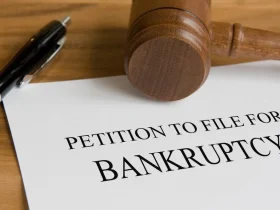Alcohol withdrawal occurs when someone who has been drinking heavily for a long time suddenly stops. Most withdrawal symptoms are unpleasant. Alcohol is one of the drugs that can cause death during withdrawal.
However, alcohol withdrawal can be safely treated. But if you want to stop drinking, you shouldn’t try to do so on your own. This is especially true if you quit cold turkey.
Here you will find everything you need to know.
How Is Alcohol Withdrawal Diagnosed?
The symptoms of alcohol withdrawal are most commonly diagnosed in a hospital or rehab center, either during detox or due to withdrawal symptoms becoming a medical emergency.
The severity of withdrawal symptoms can be determined by a physical examination performed by your healthcare practitioner. Dehydration, an abnormally slow or fast heart rate, and a high temperature are among the things they may look for.
Alcohol Withdrawal Timeline
Depending on your circumstances, you may experience withdrawal symptoms at a different time, for a different length of time, and for a different intensity. It is common for people to experience three phases of withdrawal, even if their symptoms do not follow this pattern. For most people, withdrawal symptoms subside within a week.
1st Stage: Mild Symptoms
You may experience withdrawal symptoms within six hours of your last drink. These symptoms are usually mild and unpleasant. They include:
- Nausea
- Tremors (sometimes called “shakes”)
- Changes in blood pressure
- Anxiety
- Insomnia
- Sleep problems
The majority of people who experience alcohol withdrawal will recover after going through these symptoms.
2nd Stage: Seizures and Other Dangerous Symptoms
Most people who develop severe symptoms, such as seizures, begin within 48 hours of their last drink. More than 5% of people undergoing alcohol withdrawal suffer seizures. Symptoms normally peak between 24 and 72 hours following the last drink consumed. If you have not developed any major symptoms like seizures after 48 hours, you are likely to recover. However, you may develop them later, so you should seek medical attention.
3rd Stage: Delirium Tremens.
About half of those suffering from withdrawal seizures suffer from dementia tremens. DTs usually appear 48 to 72 hours after someone has stopped drinking. The first few days after you stop drinking are the most critical and risky withdrawal stage. During this period, you should seek medical attention, especially if you’re experiencing symptoms of DTs.
Post-acute withdrawal may be the fourth stage.
Some people may experience withdrawal symptoms for a longer period after quitting drinking (from a week to months). In medical terms, this condition is called post-acute withdrawal syndrome, and sleep problems and mood swings are common symptoms of post-acute withdrawal.
How to Handle Alcohol Withdrawal in a Safe and Effective Manner
It is quite possible to navigate alcohol withdrawal with the right medical treatment safely. At Taylor Recovery Center, we believe that anyone can recover from their alcohol addiction through various effective treatments. It is always better to get help than to go through alcohol withdrawal yourself. Consult with our healthcare experts if you should withdraw at home or seek medical help. You should always consult your doctor before attempting withdrawal.










